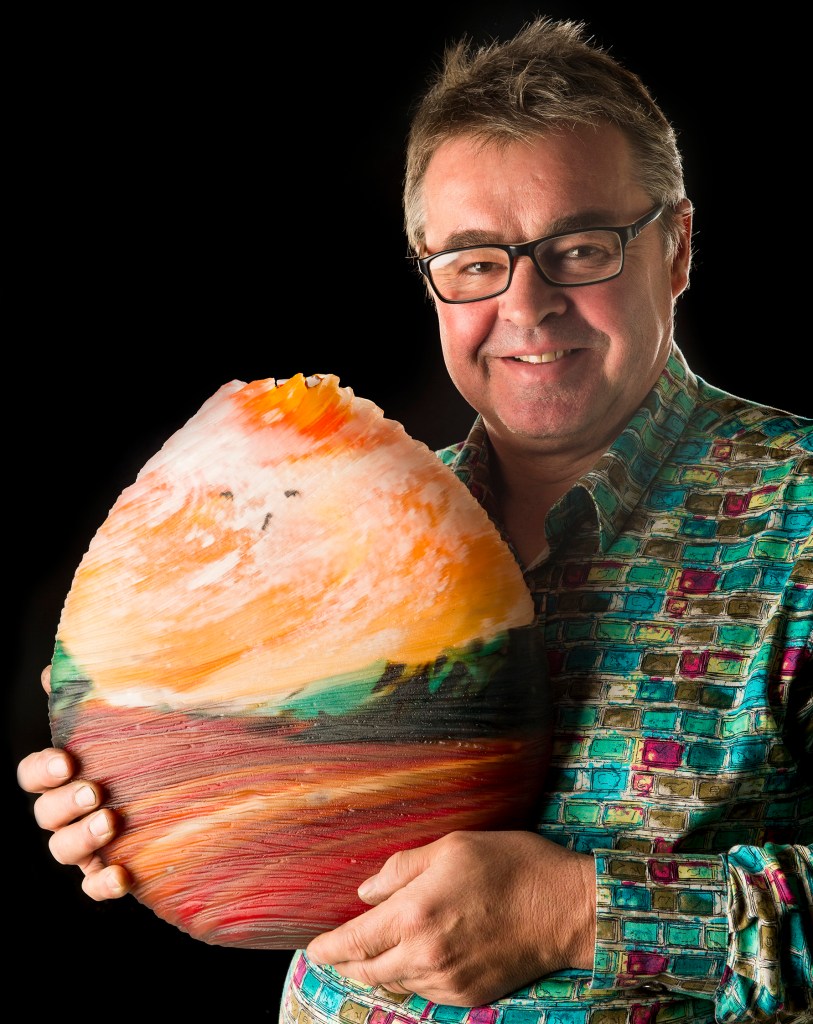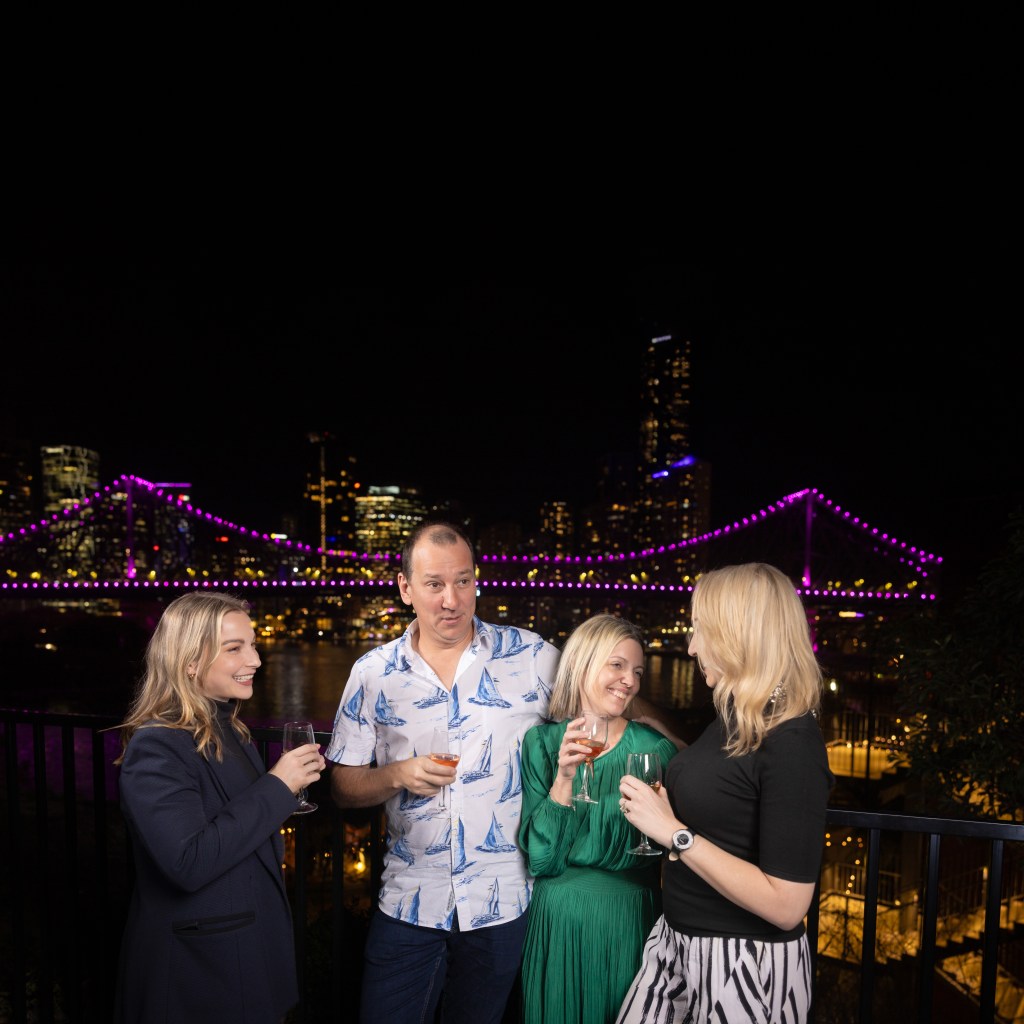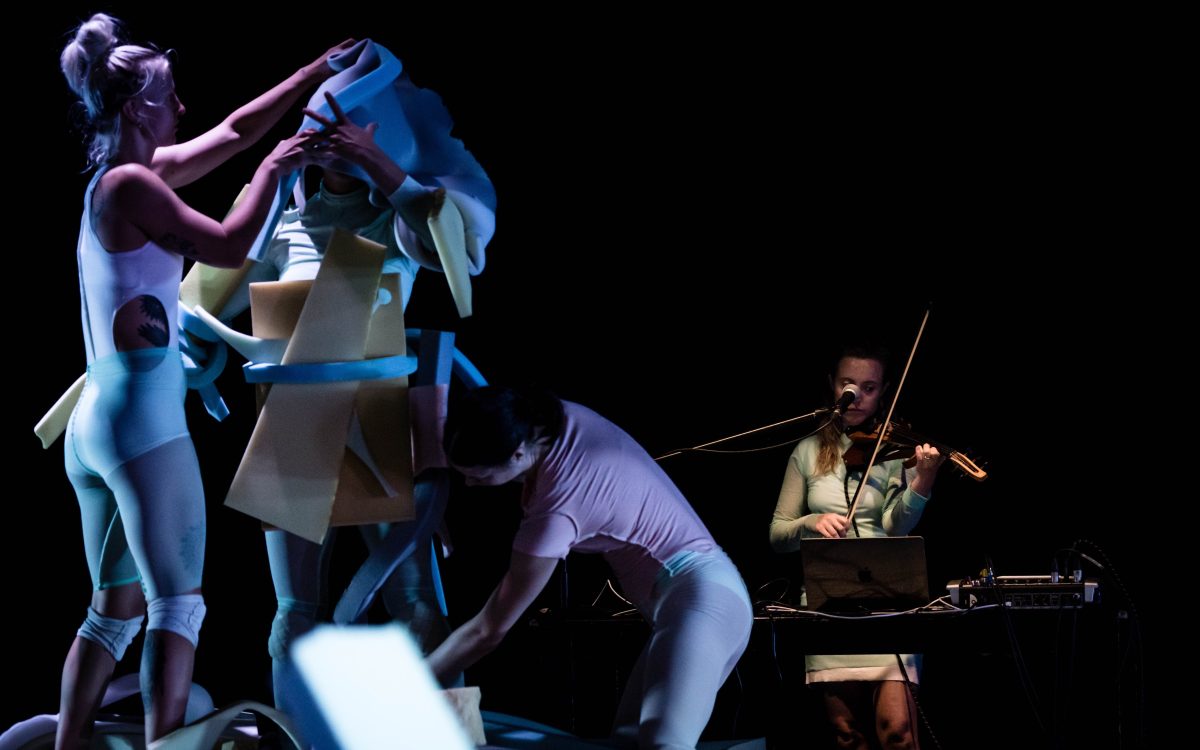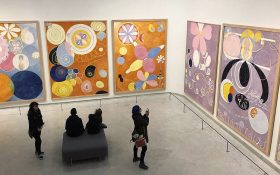At some stage in their arts practice, an artist may feel the urge to pursue their creativity in another state or even in another country. This decision to leave is not easy, with many factors to take into account. While the pros and cons need to be considered, the potential benefits of this move are what will ultimately become the deciding factor.
For those who are away from home, the idea, possibility, or even the need to return may become prominent, especially in the past few years. While it could take some time to come to terms with this idea, often it is only when back home again that an artist can fully comprehend the true wealth of their stint away.
To gain a better understanding of this conundrum that artists grapple with, ArtsHub speaks to three arts practitioners about their respective decisions to leave and then return, and the impact that this has had on their individual practices.
In this article:
Tim Shaw: ‘Trust your instincts and follow your passions’
Glass artist Tim Shaw is originally from the UK, but came to South Australia for a short teaching position and ended up staying and making it his home. He established his art practice at the Southend Art Studios in Adelaide, building his own hot glass studio and immersing himself in the local art scene. Within a few years, he suddenly found himself at the crossroads. ‘Our lease on the studio as well as the lease on our beautiful seaside house unexpectedly expired at the same time,’ says Shaw. With a young family to support, they decided to relocate to Yorkshire in the UK. ‘I saw this as an opportunity to increase my profile on the international art scene and extend my range of contacts in the UK and Europe.’
On his thoughts about pursuing a career in the arts, Shaw says: ‘As an artist, to broaden one’s knowledge and experience is truly a wonderful thing.’
He continues: ‘If your circumstances allow, always grab the opportunity to live and work abroad. Soak up the different cultures and environments, open your senses and be prepared to learn as much as you can from being away from home.’ Shaw’s advice is to ‘trust your instincts and follow your passions’.

Shaw says that moving back to the UK enabled him to greatly increase his connections with both galleries and other artists and studios. ‘It also enabled me to glean knowledge from other artists, especially in developing new techniques.’ At the time, the UK had a comprehensive network of studio glass artists, along with an ancient tradition of glass making, and a wealth of knowledge and expertise. Working in the UK also gave him greater accessibility to the European art scene. ‘This knowledge and information allowed me to become a much more rounded and diverse artist,’ says Shaw.
After his time in the UK, Shaw was in a position to establish a new studio in the Adelaide Hills – one that is fully equipped and purpose-built to his individual way of working. He says that building and equipping a new studio of his own has been very inspiring for his creativity and has enabled him to flourish. ‘One of the insights that I gained during my time away was that to be able to be truly creative, you have to create a space that is conducive to do that in.’ Shaw adds: ‘Returning to Australia enabled me to recreate my art practice, in a unique natural environment and to be able to see the country with fresh eyes.’
On the one lesson he learned while being away, Shaw replies: ‘Due to my personal circumstances changing in Australia and having the opportunity to relocate my practice to overseas was fortunately beneficial… The lesson was to have the courage to be able to turn a negative situation into a positive one.’
He continues: ‘Depending on your circumstances, if you are able, don’t be perturbed to take a leap of faith in regards to your art practice. If an opportunity should present itself to relocate, grab it!’
Read: Creativity begins at home? Families in support of artistic growth
While Shaw works primarily with glass, he often incorporates other materials into his artworks. His unmistakable style is a result of years mastering his skill and continually exploring his creativity.
Shaw has three degrees in glassblowing from North Staffordshire Polytechnic (UK, now Staffordshire University), Gerrit Rietveld Academie (Amsterdam) and the Royal College of Art (London). He has had numerous exhibitions both nationally and internationally, and his work is collected worldwide, as well as housed in both private and museum collections.
‘I tend to create both through inspiration and intuition. Sometimes it’s a long and arduous process to even get the glass to do what I want it to do – and it’s ultimately in the hands of the glass gods really. I think that’s what I love about it the most though,’ says Shaw.
Stephen Vagg: ‘Stick to your aspirations’
Writer and director Stephen Vagg has left and returned to home city of Brisbane in Australia three times. Vagg tells ArtsHub that he fully expected to go to film school there, but had no luck, forced to travel out of state to study.
For those wishing to pursue a career in the arts or feel the need to relocate should they have the opportunity, Vagg advises: ‘One, don’t stop working very hard on your art, ever. Treat it as seriously as if you are training for a sport to represent your country. Two, seek out people who might give you work, aka networking. Three, lead an economically responsible life; that is, live within your means.’
Vagg says these three key things can be applied regardless of where an artist chooses to live, but may affect their decision about relocating. ‘Although you may get inspiration from relocating and working with different people, if you want to be an artist, practise your art. It shouldn’t matter where you live. However, moving might be an option to go where the money is or if you want a genuine career in the arts as a proper job. It all depends on what your aspirations are.’
The one lesson Vagg has learned from leaving is that ‘people who don’t leave home seem to have a narrower view point in life’.
‘So I think it’s good to leave – it makes you appreciate home more and puts context behind leaving.’
Vagg agrees that he has gained invaluable knowledge and insights to improve his arts practice while he was away. ‘I got to work as a professional in my creative field, which is an amazing privilege compared to many in the creative arts who have to do this as a hobby. This experience really taught me how to work solely on my arts practice.’

Regardless of where he is located, Vagg maintains his arts practice methodology by doing ‘face-to-face meetings so that I don’t get forgotten’. He concludes: ‘I’ve also realised that the talent outside my home city is not greater – there are just more people and resources.’
Vagg’s play, All My Friends Are Leaving Brisbane was first staged in 2000 and then, later in the same year, made into a film.
Recently his sequel, All My Friends Are Returning To Brisbane, was performed as part of the 2023 Anywhere Festival. His new play is a comedy about coming home, and discovering that some things change while others remain the same.
Vagg’s scriptwriting credits include Australian serials Neighbours, Home and Away and the successful Nickelodeon series, Rock Island Mysteries.
Adam Wheeler: ‘It takes you out of your comfort zone’
Adam Wheeler began his contemporary dance journey when he was 17, ‘a bit late to the industry’ as he puts it. Thus, he felt that it was necessary for him to move to a big city, in his case Melbourne (Australia).
‘Tasmania was unable to provide me with the essential training facilities required for me to improve. I was particularly inspired by Stephanie Lake and Luke George, dance alumni based in Melbourne,’ says Wheeler. ‘It was overwhelming to move to Melbourne, but I found consolation in the fact that I was not moving abroad or having to learn a new language in the process.’
When asked about his advice to those who wish to pursue a career in the arts, Wheeler says: ‘Don’t second guess yourself. Just do it! Support networks are very important. So nurture these.’ He adds: ‘I feel incredibly fortunate to be working in the arts. But I don’t see myself as a one-dimensional being, one who only ever sticks to one genre. My advice is to pursue other creative outlets when your practice lets you down.’
When he’s exhausted or uninspired, Wheeler resorts to playing the guitar and dabbling in photography. ‘My creative pastimes are my saviours and the bridge that leads me back to my main arts practice. Over the years, I’ve learned to lean more and more on these, especially when I’m stuck or hurting.’
Wheeler was based in Melbourne for 17 years. Since his return to Tasmania, he has been the Artistic Director of Tasdance. He admits that the skills and experience that he gained while being away has allowed him to confidently rebrand Tasdance and to create Assembly 197 – a space to present large-scale, multi-art form works. ‘My advice is to take up any opportunity to travel. It takes you out of your comfort zone where you’re forced to be inventive and creative with your ideas.’
Read: Full circle: Tasdance’s new Artistic Director on coming home to Launceston
Now based more remotely, he has implemented methodologies that have influenced his arts practice. ‘First, it was very important to me to connect with the Tasmanian Aboriginal community. My respect and admiration for their connection to the land, their culture, their language and their storytelling influenced that decision.’ Pursuing this connection became an absolute necessity for Wheeler and opened new pathways to learning.
‘Second, [thinking about] how we break down silos between disciplines and genres to find innovative ways to tell our stories. Doing these in isolation has its disadvantages. It’s more valuable and worthwhile to find interesting avenues to leverage from.’ Wheeler says that building relationships takes trust, and building trust takes time. Over time, working with the palawa community, he continues to build that rapport and contribute to some amazing projects. ‘I haven’t always got it right, but through deep listening and learning, trust is built, resulting in positive outcomes for all,’ says Wheeler.
It’s been 20 years since his big move and there have been many lessons learned along the way. One of those lessons was to be able to attain financial stability without having to work alternative jobs and train at the same time.
‘One other lesson,’ Wheeler adds, ‘is that I’ve also learned to take risks, to go with my gut instinct and to do the “homework” beforehand.’
Read: A word of advice for our era: ‘Never be surprised’
Wheeler’s advice is that key organisations across all creative industries need to make space and provide opportunities for this upcoming generation of creatives to be their own kind of movers and shakers, and be the leaders of the future.
So whether an artist moves to another state or country, it’s clear that there are benefits, even when it involves a learning curve. The skill sets that these creative practitioners have acquired are to their advantage and, when they do eventually return, the community where they choose to live is richer because of their experiences.
This article is published under the Amplify Collective, an initiative supported by The Walkley Foundation and made possible through funding from the Meta Australian News Fund.





